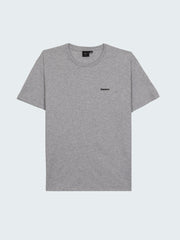Regenerative Cotton
Our regeneratively farmed organic cotton is grown with practices that work in harmony with nature to increase biodiversity.
In 2024, we proudly launched our first range made with regenerative fibres. The term relates to the way in which crops or livestock are grown or maintained, and 'regenerative farming' prioritises working in harmony with nature – optimising the capture of carbon by the soil, as well as encouraging the biodiversity and health of the land.
Although there are various definitions of regenerative farming, most agree on the following core principles:
Least Disturbance:
Whether avoiding chemicals, using resources responsibly, or avoiding over-farming, regenerative farming practices focus on reducing the impact on the land as much as possible.
Increase Biodiversity:
This can be done by reducing mono-crop farming, incorporating different plants, particularly local flora, and creating areas that encourage wildlife to flourish.
Soil Protection:
Rather than an extractive practice that strips the soil, regenerative farming practices include crop and livestock rotation, and planting in empty fields to combat soil run-off.
Location:
Biodiversity and weather conditions will differ depending on where the farm is, and this should be accounted for in regenerative farming practices to ensure the right crops and resources are used.
At Finisterre, we support our suppliers to move towards these holistic farming methods where possible and in 2024 were proud to introduce new lines that were produced in accordance with these lower impact farming practices. In 2025, 75% of our t-shirt range was made with regeneratively farmed organic cotton by our partners in Türkiye
Are Regenerative Fibres Easy To Source?
Regenerative farming practices within the textile industry are relatively new. This means there is limited availability of this type of material, so it can be expensive and difficult to source. However, these regenerative practices can be initiated in the farming of any naturally grown fibre, such as linen and cotton, as well as animal fibres such as alpaca and sheep wool.
Our Regenerative Cotton Journey
We are committed to supporting our suppliers in transitioning to holistic farming practices wherever possible. As part of this effort, we have been working closely with one of our main product manufacturers, Egedeniz in Türkiye. They have implemented regenerative farming practices with their growers and now offer 100% regenerative Organic Cotton, which will be available in a range of our garments from 2025.
Transitioning farmland to regenerative methods takes time, and securing third-party certification is also a lengthy process. While this first season reflects Organic Cotton grown using regenerative practices, they are actively working toward full certification and expect to achieve it by the end of 2025.


















































































































